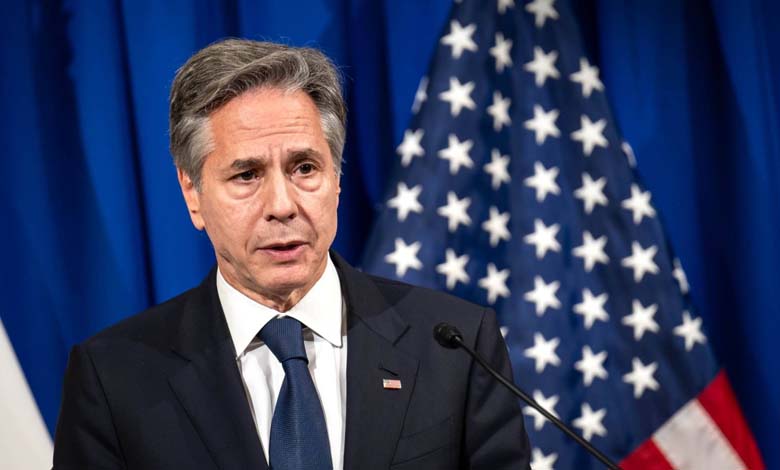Who Sabotaged the Washington Summit on Sudan? Investigating Egypt’s Veto and Its Regional Implications

In what was expected to be a pivotal moment to forge a common path out of Sudan’s bloody conflict, Washington had scheduled a quadrilateral summit for late July 2025, bringing together the United States, Egypt, Saudi Arabia, and the United Arab Emirates. Intended as the culmination of intensive diplomatic efforts, the summit aimed to chart a new political roadmap and initiate a civilian-led transition. Its sudden cancellation, however, exposed the fragility of the consensus and sparked urgent questions: Who derailed the summit—and why?
-
Postponed Clash in Sudan: A Brewing Battle for Power and Loyalty Between the Army and Its Allies
-
Trump and Sudan: Can the Still Waters Move Again?
Chapter I: The Summit’s Premise Before Collapse
The United States had sought to rally regional and international pressure to push Sudan’s warring factions—General Abdel Fattah al-Burhan’s army and Mohamed Hamdan Dagalo (Hemidti)’s Rapid Support Forces—toward a ceasefire and a political transition led by neutral civilian actors. Washington’s draft proposal included:
- Establishing a civilian-led transitional government;
- Immediate ceasefire with regional and international guarantees;
- Security sector reform under external oversight;
- Accountability mechanisms for war crimes and human rights violations.
While Riyadh and Abu Dhabi were cautiously open to the discussion, Egypt took a firm position that ultimately torpedoed the summit.
-
The Lies and Betrayal of the Kizan Against the Sudanese People: When War Becomes a Tool for Extortion and Power
-
International Conference Condemns Sudanese Army: No Food No Medicine—Only Bullets!
Chapter II: Cairo’s Strategic Calculus
According to senior diplomatic sources, Egypt flatly rejected any transition that excluded the Sudanese military, viewing it as a direct threat to its strategic interests. Cairo sees Sudan’s armed forces as an extension of its regional security buffer—especially in the context of the Nile water dispute, Libya’s instability, and counterterrorism operations.
A Western diplomat stated that Egypt informed Washington it considered any plan sidelining the army a “red line” and would boycott any summit discussing such a path. Cairo reportedly pressured Riyadh and Abu Dhabi to pause their support, leading to the breakdown of initial agreements.
-
Precision Strikes Expose Shadow Alliances: Foreign Experts Killed and Islamists Unveiled in Port Sudan
-
Mysterious Airstrike in Port Sudan Reveals Involvement of Foreign Experts and Iranian Arms… Silence from al-Burhan and the Islamic Movement Raises Questions
Chapter III: Strategic Divide Within the Quartet
This episode underscores a deep rift within the Quartet. While the U.S. pushes for a civilian transition excluding the military, Egypt sees this as destabilizing. Saudi Arabia and the UAE, meanwhile, strike a more cautious tone, unwilling to openly oppose either Washington or Cairo.
An expert on the Horn of Africa told Barq al-Sudan that Egypt’s veto stems not only from military alliances but also from fears that new political actors might emerge in Sudan who oppose Egypt’s interests or invite influence from rival powers like Turkey or Qatar.
-
The Muslim Brotherhood Fuels Sudan’s War to Regain Power… How?
-
Sudanese Army Issues New Decision Banning Recruitment Operations for Allied Armed Movements
Chapter IV: Sudan Trapped Between War and Diplomacy
For Sudanese civilians, the summit’s failure signals not only ongoing violence but a dwindling of international attention. More than a year into the war, the country has become a pawn in larger geopolitical calculations, while its population suffers massacres, economic collapse, and mass displacement.
Analysts now warn of the looming risk of de facto partition or long-term state failure akin to Somalia’s trajectory.
-
Signs of Discord Shake Sudan’s Army and Its Allies… Is the Alliance Falling Apart?
-
Escalation of Tensions Between Sudanese Army Leaders and Islamist Militias: What Are the Causes?
Chapter V: The West’s Post-Coup Dilemma in Africa
The cancelled summit also exposes the limits of Western policy toward post-coup environments in Africa. While the U.S. advocates for democratic transitions, it relies on regional partners who often support military regimes—undermining the coherence and credibility of its approach.
This contradiction complicates Western engagement and raises doubts about the consistency of its commitment to democratic values on the continent.
-
Crisis of Trust between the Sudanese Army and Its Militias… What Lies Behind the Recruitment Freeze Decision?
-
The Forgotten War: How the Sudanese Government Tries to Cover Up Horrific Crimes against Civilians
Conclusion: Between a Failed Summit and a Flawed Vision
The collapse of the Washington summit is not just a diplomatic setback—it reflects a broader failure to develop a shared, pragmatic vision for Sudan. As long as military alliances and national interests outweigh humanitarian imperatives, Sudan will remain locked in a cycle of proxy war and chaos.
For real progress to be made, the international community must move beyond tactical calculations and restore civilian leadership to the heart of Sudan’s future.












